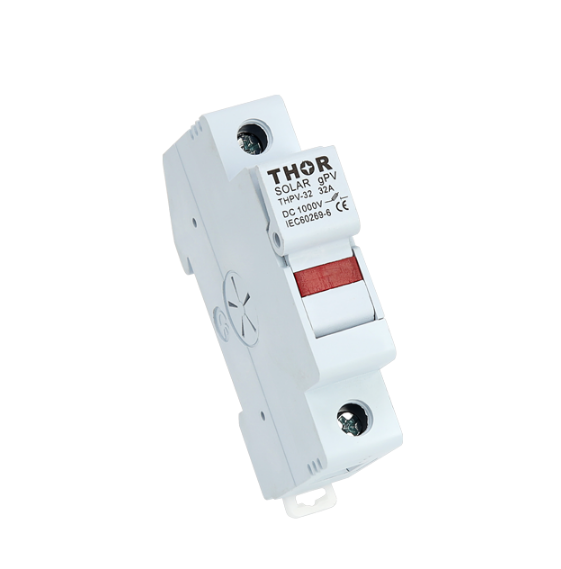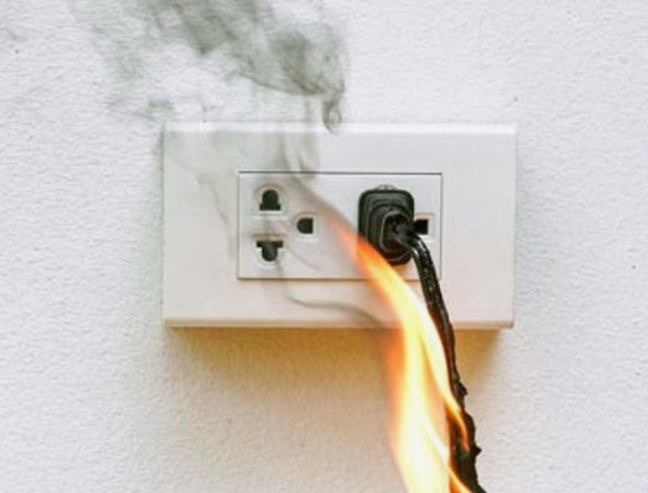The fuses of AC blow out very frequently because of the overloading of current, short circuiting, aged electrical parts, or due to environmental conditions. All these causes make the current in the circuit abnormal and exceed the capacity which the fuse is rated for, which blows it.
Overload Current
The most common causes which make the fuse blow out are overload current. Because the current in the circuit is bigger than the rated value of the fuse, the fuse has no way to stand excessive current and thus blows down due to overheating. Overload usually happens when the circuit is overloaded, or the power of electric appliances is too high.

If a startup current of an air conditioner is for example twice its rated operating current, then an air conditioner of 1500 watts with a rated current of 6.8A may have a start-up current as high as 13.6A. This instant overload may cause the fuse to blow.
Overload Causes
-
There are many high-power appliances operating at the same time. This, of course, includes running an air conditioner, washing machine, and electric heater together, which will overload a circuit beyond its designed capacity.
-
Aging or damaged electrical equipment causes abnormal power consumption. For example, an aging motor can increase current use by as much as 20%-30% over when the equipment was new. Moreover, this increase of current directly impacts fuse capacity.
Faults due to Short Circuits
Very frequent fuse blowouts are normally symptomatic of short circuits. A short circuit means the current bypasses the load and directly flows between the positive and negative poles of the power supply. This results in a very sharp and high increase of current way above the rated current the fuse operates at and thus the fuse instantly blows.
In a 220V circuit, if part of the line occurs a short-circuit fault and the line resistance reduces to 0.5 ohms, then the current at the fault point will surge up to 440 amps, because 220V is divided by 0.5Ω, which equals 440A. This current is so huge that exceeds the carrying capacity of the fuses of an ordinary household electric circuit and will cause it to blow up within several ms.
Short Circuit Causes
-
Aging of the insulation on wires: Due to environmental elements, insulation on the wires gets worn or damaged and causes a short circuit.
-
Internal faults in the electrical equipment: For example, the breakdown of the insulation layer of a motor winding may cause a winding to short-circuit and provide a path for the current to bypass the load and increase suddenly across the circuit.
Detection and Prevention
-
Use of multimeter in measurement of resistance of the circuit: usually, the resistance of the circuit should be relatively high. In this case, if the value of resistance is close to 0 ohm, then there is a short circuit in the circuit.
-
Infrared thermal imaging: this is a quick method of hotspots' detection in the circuit, showing the possible places of a short circuit or overload.
Component Aging
Component aging leads to performance degradation, hence drawing abnormal currents that can blow fuses. Component aging occurs quite often in key components, including capacitors, motors, and circuit boards, as their operational states deteriorate.
Common Causes of Component Aging
-
Frequent use: Long-time high-intensity use makes the electrical component get older in advance. Such as compressors that start frequently are easily damaged, and its starting current grow higher and higher until blowing up the fuse.
-
Environmental factors: High temperature, humidity, and so on accelerate the aging of the component, making its operation performance is unstable and boosting current load.

Environmental Influence
High temperatures, humidity, and vibration are some of the environmental factors that influence the normal working operation of electrical equipment and fuses. The increased temperatures decrease the fuse-rated current, whereas humidities increase deteriorating insulation performance of electrical components; hence, increasing the possibility of a short circuit.
Main Environmental Impacts
-
High temperatures: rated current value of fuse decreases when the ambient temperature increases. A fuse may only handle 90% of its rated current in an environment with 50°C, thus it will blow under normal current conditions.
-
Humidity: in high humidity situations, moisture gradually gathers inside the electrical equipment. Moisture damages the insulation layer inside the equipment and therefore increases the possibility of a short circuit.

